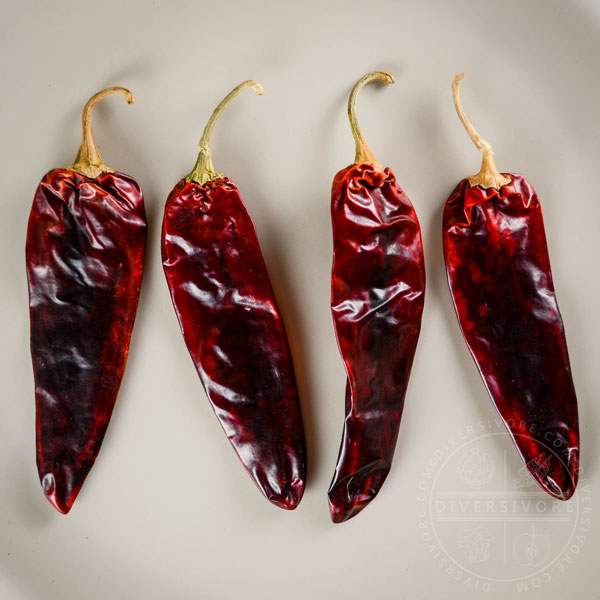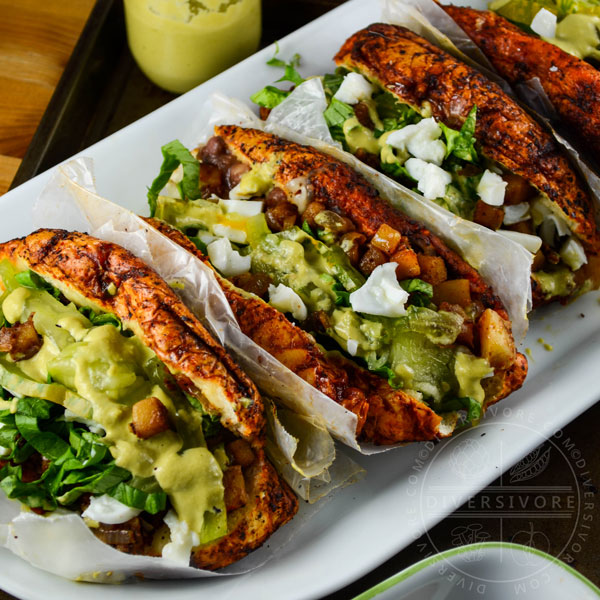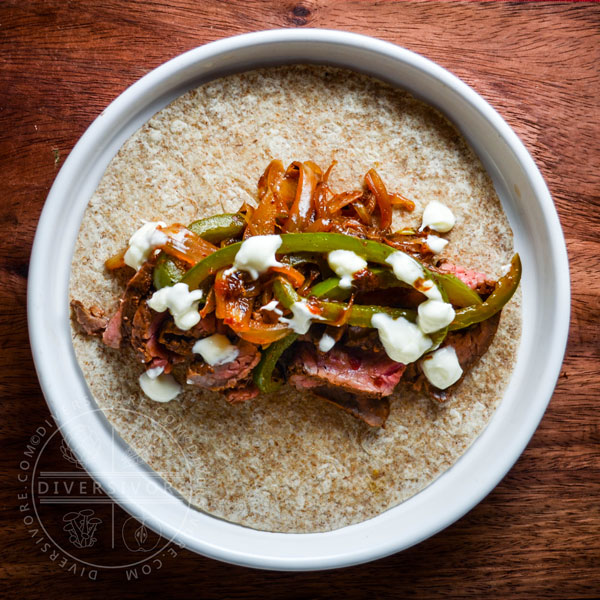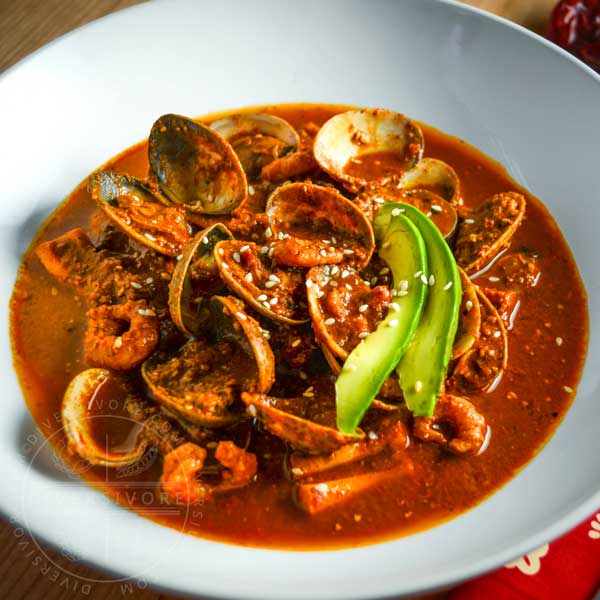
Share this Guide
The Basics
What Are They?
Guajillo chilies (or chiles) are are long, dried, red, hot mirasol chili peppers (part of the highly variable species Capsicum annuum).
What are they used for?
They’re a fairly common and popular pepper in Mexican cooking, though they tend not to be as quite well-known/used outside of Mexico. Guajillos are quite versatile, and are used in a variety of sauces, marinades, stews, meat dishes, and more.
Flavour Profile
Sharp yet earthy, fruity, tangy, and somewhat smoky, with noticeable but not overwhelming heat.
Other Names
English: Guajillo chilies/chillies/chiles
Spanish (Guatemala): guaque chiles
Scoville Heat Units
2,500-5,000 (moderate)
Guajillo FAQs
Are Guajillos Spicy?
Spiciness is relative of course, but guajillos are generally only moderately spicy. Their Scoville Heat Unit (SHU) measure is around 2500-5000, roughly equivalent to an average jalapeño.
Dishes made with guajillos can be spicy, but because their heat is often diluted in sauces, marinades, etc., guajillo recipes can actually be relatively mild.
What's a good substitute for guajillos?
The best substitute is, in my opinion, a mixture of pasilla and cascabel chilies (try a 1:2 ratio). There's plenty of detail on this substitution and other possibilities in the 'Culinary Info' section below.
It's also worth noting that crushed/powdered guajillos can generally be used interchangeably with whole ones. If you do use these, try to make sure you use fairly freshly ground chilies, as older ones will lose a significant amount of flavour.
Should I remove the seeds?
It's a good idea to remove the seeds and most of the membranes from your guajillos (and other large dried chilies) for two reasons. First, they're tough, and they add unwanted texture to sauces, etc. Second, they tend to be the spiciest part of the pepper (by far). That being said, they're still edible, so if you're looking to add extra heat to a dish and you're not planning to blend the peppers, you can get away with leaving the seeds and membranes in. Do make sure to remove the stems though.
How-To
Find
Mexican/Latin grocery stores and online shops are generally the easiest places to find guajillo chilies. See "Need More Details" below.
Choose
Look for whole peppers with rich dark red colouring and a general lack of blemishes. Dried guajillos should be somewhat supple, and not overly brittle. Watch out for small holes in the peppers or accumulations of chili dust in packages, as these may be signs of insect damage.
Prep
Difficulty: Easy to Moderate - Guajillos should have the stems, seeds, and inner membranes removed before using . As with most chilies, guajillos benefit from toasting in a dry pan (or microwaving!) prior to being added to dishes. Guajillos are generally rehydrated as part of the cooking process. See "Need More Details" below for notes on these prep techniques.
Use
Guajillos add a bright, sharp, fruity-yet-earthy flavour with mild to moderate heat, and are excellent in a variety of soups, sauces, moles, and other dishes. They're frequently pureed into dishes. Whole (softened) chilies are occasionally stuffed. Ground guajillos can also be used in later cooking stages to add extra heat and flavour to a dish.
Store
Store in a tightly sealed, airtight container or resealable bag in a cool, dark pantry.
Culinary Info
Flavour Profile
Sharp yet earthy, fruity, tangy, and somewhat smoky. Guajillos have a complex yet highly versatile flavour. They also contribute noticeable, but not overwhelming heat.
Substitutions
A mixture of cascabel and pasilla chilies (1:2 ratio by weight) is the best substitute in my opinion. Puya chilies are a good flavour substitute too, though they are noticeably hotter. See "Substitution Note" below for details and alternatives.
Cuisines
Most prominent in Mexican cooking, but also found in other Central American dishes. Guajillos are finding their way into more Tex-Mex cooking as well.
Flavour Pairings
Because their complex flavour has many elements to accentuate or play off of, guajillos partner beautifully with a very wide variety of foods. Their bright yet earthy flavour pairs nicely with milder proteins like pork, chicken and seafood, as well as sweet vegetables like corn and squash. Other chilies are also often used alongside guajillos - the Holy Trinity of Pasilla, Ancho, and Mulato are excellent partners.
Related Varieties
Guajillo chilies are part of the mirasol group of chilies. The word mirasol means 'looking at the sun' - a reference to the way in which these chilies grow pointing upward into the sky. This group includes the similar cascabel and puya chiles.
More Info
Nutrition
Guajillos (and chilies in general) are exceptionally high in Vitamin A - a single guajillo chili will deliver more than 100% of the recommended daily value. Beyond this, the nutritional impact of any dried chili is generally low, as they aren't used in large enough quantities to significantly impact other nutritional measures.
Top-to-Tail
Aside from the tough stem, the entire guajillo chili pepper is edible. The seeds and inner membranes are tougher and spicier, and are frequently discarded, but they are nonetheless edible. The leaves of pepper plants are also edible, and are eaten as a green vegetable in some cultures.
GMO Status
Guajillo chilies are uniformly Non-GMO. Genetic modification/editing of chili peppers (Capsicum annuum) has been explored in experimental settings, but none of these have entered the food supply.
Organic vs. Conventional
Both organic and conventional guajillos are grown, the the latter tends to be much easier to find. Organic farming is becoming more common among chili growers, though many smaller farms and producers may use organic methods without being able to afford organic certification.
Share this Guide




